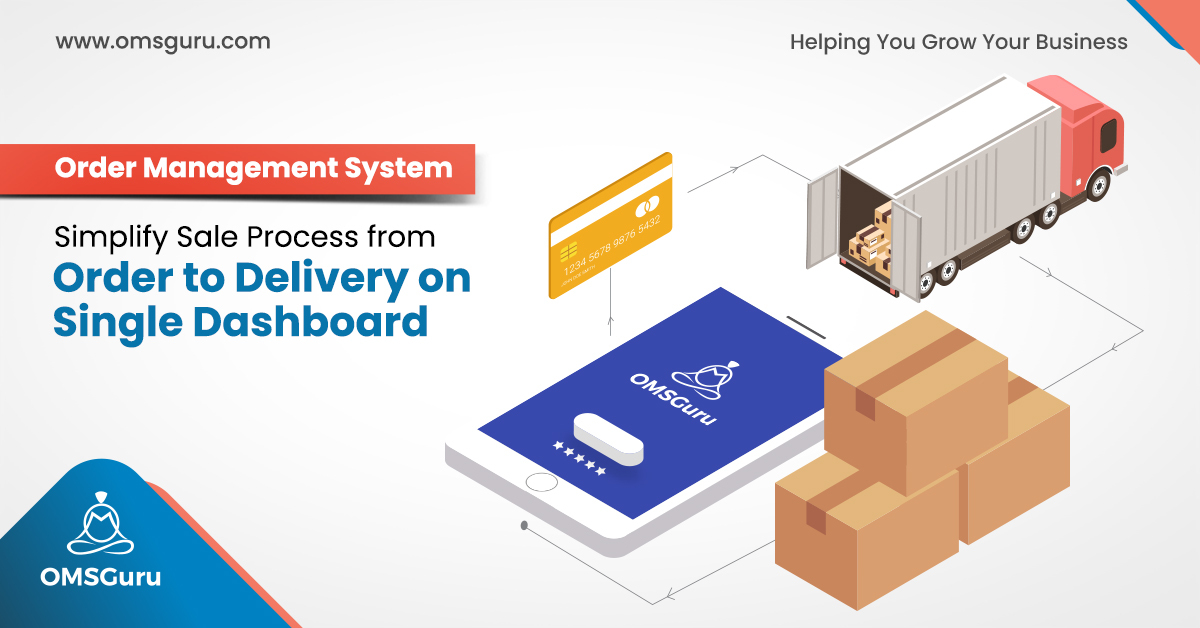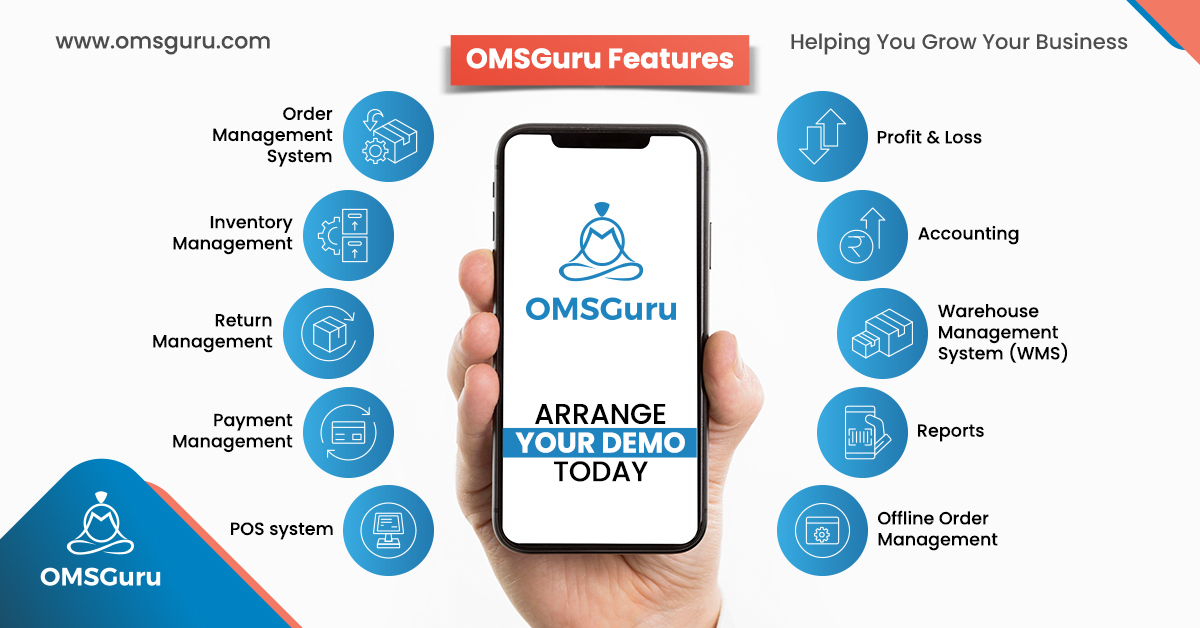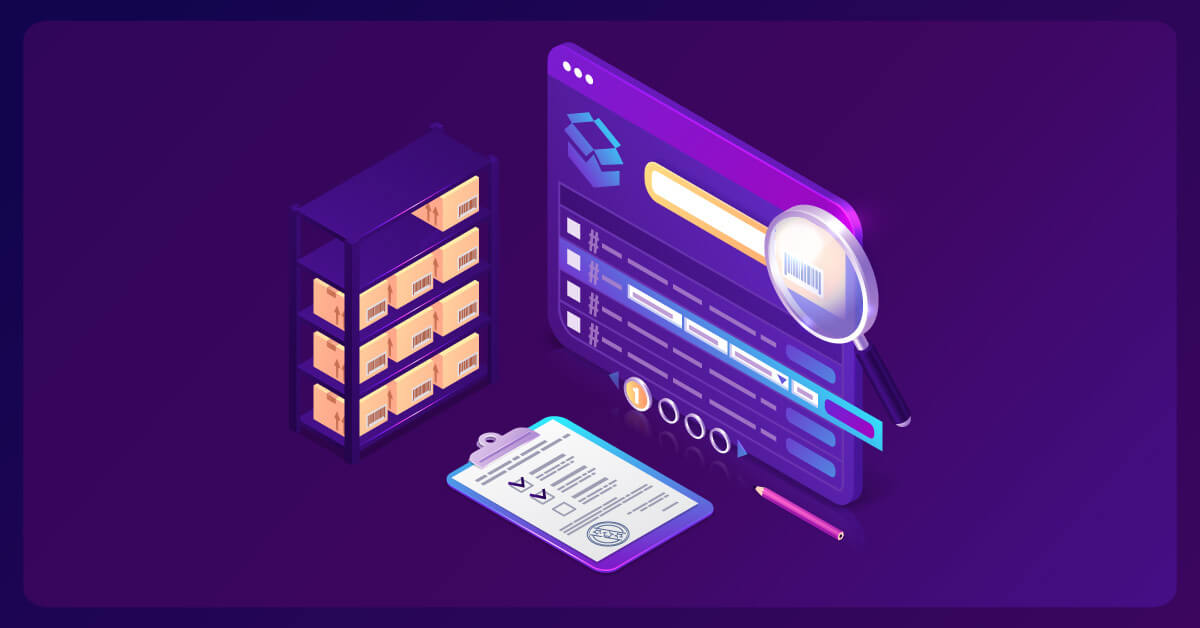17 Apr

Managing orders within a business is a tedious task, and that is why we have OMS, aka, Order Management System. It is a software application that automates the process of order management.
We’re talking about inventory, sales, and customer information: with a good OMS system, your inventory can be managed well. With this organised data, you can easily access all the data from anywhere at any time.
Moreover, this system can also help you automate other processes such as order processing, shipping, invoicing, money collection and many more.
So, how do you know which is the right OMS system for you?
In this article, we will be casting light upon how OMS works and how to choose the right one.
Let’s get started!
How to Choose the Right OMS
An Order Management System (OMS) is an essential tool for managing online orders and inventory across multiple channels. Choosing the right OMS for your business can be a daunting task as there are numerous options available in the market.
The right OMS can streamline your order processing, inventory management, and shipping, while also providing valuable insights into customer behaviour and sales trends. To choose the right OMS for your business, you need to consider factors such as the size of your business, the complexity of your operations, the number of sales channels, and your budget.
You should also look for features such as automation, integrations, and scalability to ensure the OMS can grow with your business.
To understand this further, here are a few steps to make sure you choose the right OMS for your unique requirements.
Further reading: Multichannel Inventory Management – Challenges & Solutions
1. Evaluate Your Business Requirements:
The first step in choosing the right OMS for your business is to evaluate your business requirements. You should consider the size of your business, the complexity of your operations, the number of sales channels, and your budget. For instance, if you are a small business with only one or two sales channels, you may not require a full-scale OMS with a high price tag. However, if you are a larger business with multiple sales channels, you will require a more robust and flexible OMS.
2. Identify Your Order Management Process:
The next step is to identify your order management process. The order management process involves various steps such as receiving and processing orders, managing inventory, shipping orders, and handling returns. You should analyse your existing order management process to identify areas that require improvement. This analysis will help you choose an OMS that meets your unique business requirements.
3. Consider Inventory Management:
An OMS should have an Inventory Management System to manage your inventory levels effectively. You need to ensure that the OMS you choose can handle the size and complexity of your inventory. Additionally, the OMS should have features that allow you to monitor inventory levels in real-time and make necessary adjustments. This helps avoid overstocking and stock outs.
4. Look for Omnichannel Order Management Capabilities:
An Omnichannel Order Management System is a must-have for businesses that sell across multiple sales channels. This OMS allows you to manage orders from various sales channels in a single system. This integration eliminates the need to log in to multiple systems, which can be time-consuming and prone to errors.
5. Consider Automation and Integration Capabilities:
Automation and integration capabilities are essential for businesses that want to streamline their order management process. An OMS with automation capabilities can help you reduce manual errors, save time, and increase efficiency. Additionally, integration capabilities allow you to connect your OMS with other systems such as accounting software, shipping carriers, and marketplaces.
6. Look for Scalability:
Your business will grow, and you need an OMS that can grow with you. Therefore, you should look for an OMS that is scalable and flexible. The OMS should have features that allow you to add new sales channels, products, and users as your business expands. A scalable OMS ensures that you do not outgrow your order management system.
7. Evaluate the OMS Provider:
Before choosing an OMS, you should evaluate the OMS provider. You need to ensure that the provider has a good reputation, reliable support, and adequate resources to support your business. Additionally, the provider should have a proven track record of providing excellent customer service and technical support.
8. Consider a Cloud-based OMS:
A cloud-based OMS is hosted on a remote server and accessed through the internet. This OMS has many advantages, such as low upfront costs, automatic updates, and scalability. Additionally, cloud-based OMS providers handle the technical aspects of the OMS, such as maintenance and updates, which frees up your time to focus on your core business activities.
9. Look for Analytics and Reporting Capabilities:
An OMS should have analytics and reporting capabilities to provide insights into your sales trends and customer behaviour. This data can help you make informed business decisions and improve your operations. Additionally, the OMS should have features that allow you to generate reports quickly and easily.
Order Management System That’s Customised for Your Business

Having an Order Management System tailor-made for your business can significantly improve your order processing, inventory management, and shipping. A customized OMS ensures that your business’s unique needs are met, and you can enjoy increased efficiency, productivity, and customer satisfaction.
Here’s how OMSguru can assist you.
1. Order management system:
An Order Management System (OMS) is a software tool that helps businesses manage their order processing, inventory management, and shipping across multiple sales channels. It provides a centralized platform for managing orders, automating processes, and optimizing operations.
2. Profit and Loss:
By tracking the cost of goods sold, shipping expenses, and other relevant expenses against revenue earned, businesses can gain insights into the profitability of their OMS operations and make data-driven decisions to optimize profitability.
3. Accounting:
This involves tracking financial transactions related to order processing, inventory management, and shipping. It helps businesses ensure accuracy in financial reporting, compliance, and auditing.
4. Warehouse Management System (WMS):
WMS is a software tool that helps businesses manage their warehouse operations, including inventory management, order fulfilment, and shipping. It provides real-time visibility into warehouse activities and enables optimization of warehouse operations.
5. Insightful reports:
It refer to analytical insights generated from data related to order processing, inventory management, and shipping. Reports help businesses identify opportunities for optimization and make data-driven decisions to improve operations.
6. Offline Order Management:
The ability to manage orders received through non-digital channels such as phone or mail. It helps businesses ensure accurate and timely order processing and inventory management, even for offline orders.
7. Payment Management:
Refers to the ability to manage payment transactions related to order processing. It helps businesses ensure secure payment processing, reduce payment errors, and streamline payment reconciliation.
8. Return Management:
Refers to the ability to manage product returns and exchanges. It helps businesses ensure a smooth and efficient return process, reduce return processing time, and improve customer satisfaction.
9. Inventory Management:
Refers to the ability to track and manage inventory levels in real-time. It helps businesses optimize inventory levels, reduce stock outs and overstocks, and improve order fulfilment accuracy.
10. Point of Sale (POS) System:
Refers to the ability to integrate with POS systems to manage in-store sales and inventory. It helps businesses ensure accurate inventory levels and order fulfilment across all sales channels.
Conclusion:
OMSGuru is a platform that specialises in providing an order management system for ecommerce businesses. By leveraging their order management software, businesses can automate and streamline their order processing tasks, ensuring operational efficiency and reducing costs.
With the OMS solution, all orders from multiple online marketplaces can be synced in a single platform, allowing for centralised processing and real-time order tracking. By minimizing manual labour, the inventory management system can be optimized, and businesses can ensure accurate order fulfilment across all channels.
OMSGuru’s omnichannel order management system is an ideal solution for ecommerce businesses looking to streamline their order management process and boost operational efficiency. Book a free demo



Recent Comments